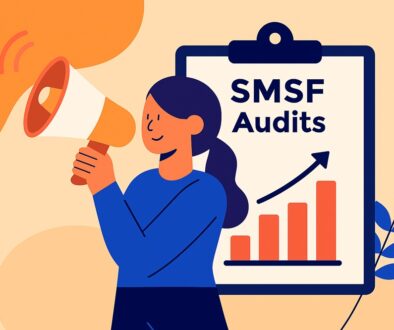Common Questions on SMSF Compliance

Running a self-managed super fund (SMSF) comes with strict compliance obligations. Trustees must ensure the fund is used solely for retirement benefits, adhere to investment rules, lodge annual returns on time, and keep accurate records. Non-compliance can lead to severe consequences, including loss of tax concessions, penalties, asset freezes, and even disqualification of trustees. Regularly reviewing your investment strategy, conducting annual audits, and addressing issues promptly are essential to keeping your SMSF compliant and protecting your retirement savings.
-
What makes an SMSF non-compliant?
An SMSF can be deemed non-compliant for various reasons, including:
- Failing the sole purpose test by using the fund for purposes other than providing retirement benefits
- Breaching investment restrictions, such as lending money to members or relatives
- Not conducting annual audits or failing to appoint an approved SMSF auditor
- Providing financial assistance to members or relatives, which is strictly prohibited
- Failing to lodge annual returns or financial statements on time
- Breaching in-house asset rules by investing more than 5% of the fund’s assets in related parties
- Allowing early access to super benefits without meeting a condition of release
- Failing to keep proper records or minutes of trustee meetings
-
What restrictions are there when my SMSF is not compliant?
When an SMSF is deemed non-compliant, it faces several restrictions and consequences:
- Loss of tax concessions: The fund loses its concessional tax rate of 15% and is taxed at the highest marginal rate of 45% or more
- Inability to receive contributions: The fund cannot accept any new contributions or rollovers from other super funds
- Asset freeze: The ATO may issue a notice to freeze the fund’s assets, preventing trustees from acquiring or disposing of assets
- Reporting restrictions: The fund may be required to report more frequently to the ATO
- Trustee actions limited: Trustees may be restricted in their ability to make decisions or manage the fund
- Disqualification of trustees: The ATO may disqualify individuals from acting as trustees
- Winding up the fund: In severe cases, the fund may be forced to wind up and transfer assets to a complying fund
- Penalties: Trustees may face significant financial penalties and even criminal charges for serious breaches
-
How often should I review my SMSF's investment strategy?
-
Can I use my SMSF to buy a holiday home for personal use?
-
What happens if I miss the deadline for lodging my SMSF's annual return?
-
Can I borrow money from my SMSF?
-
How long should I keep SMSF records?
-
What is the "in-house asset rule" and why is it important?
-
Can I fix compliance issues without the ATO finding out?
-
What happens if a member of my SMSF becomes bankrupt?
-
How often does my SMSF need to be audited?



